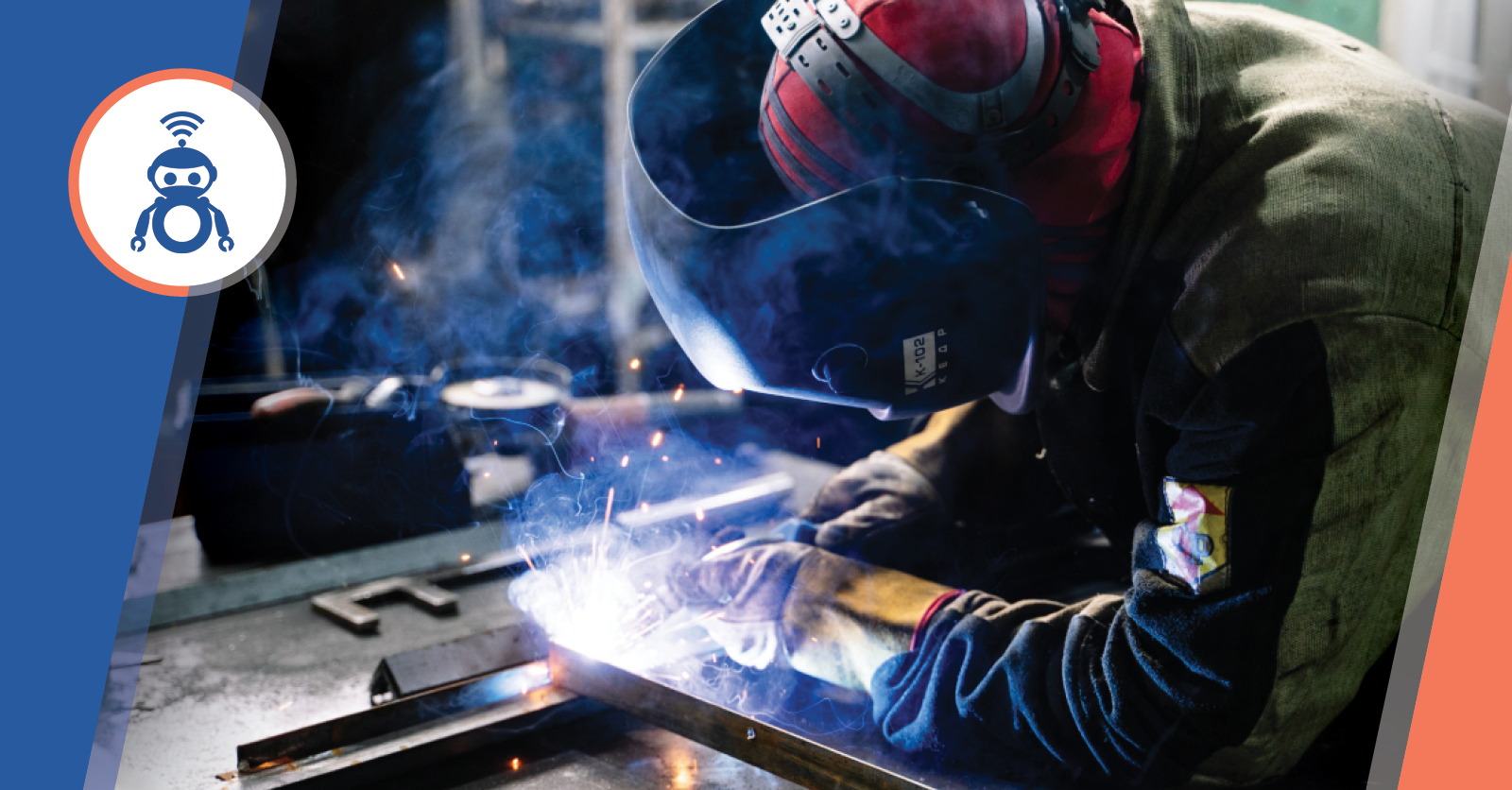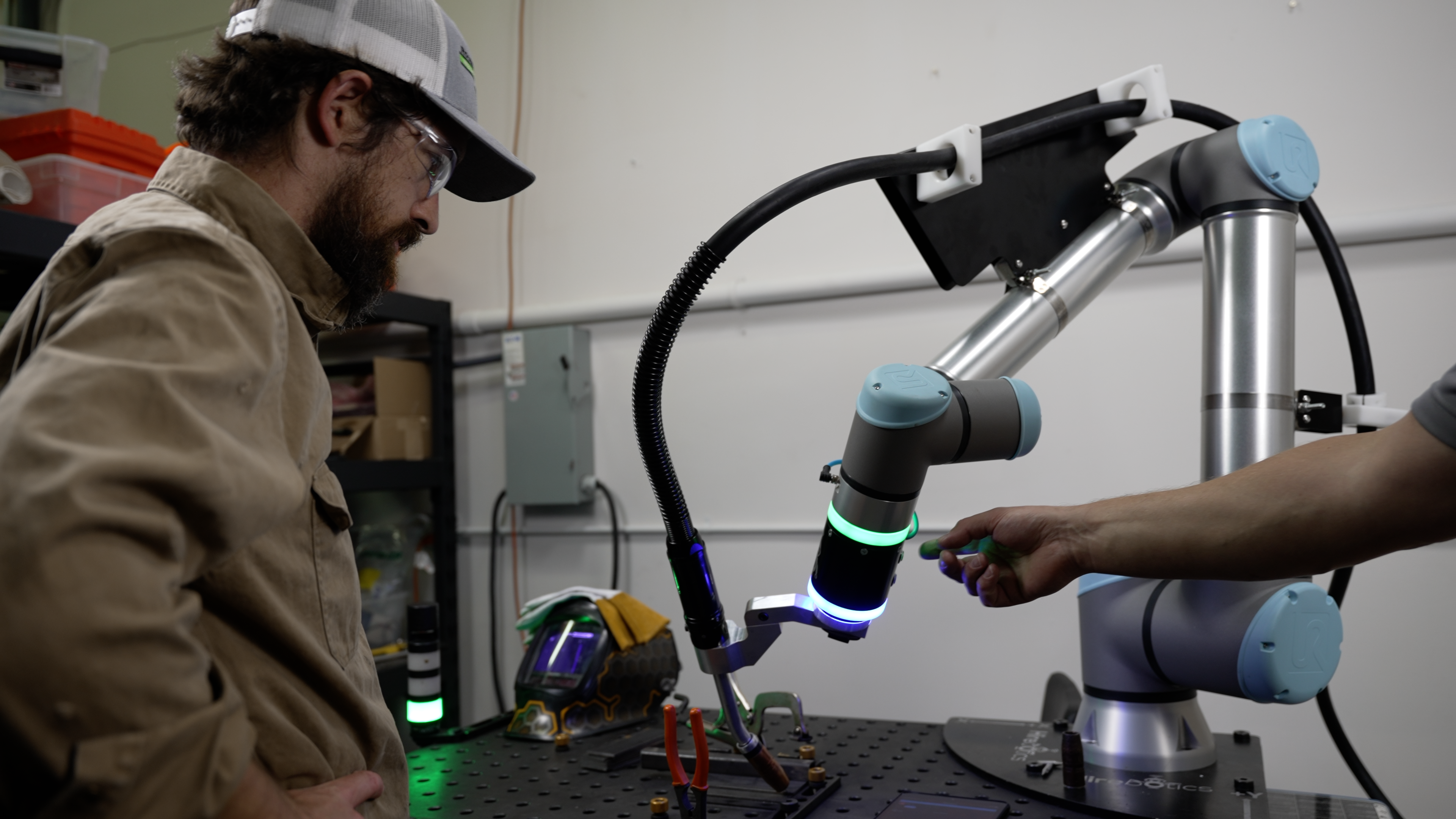How To Hire a Welder: Finding the Right Fit for Your Company
January 15, 2024

If you are in the welding industry, you know it's challenging to hire a welder. The labor shortage is not a new phenomenon and has been going on for years.
According to the AWS (American Welding Society) 336,000 new welders will be needed by 2026. Unfortunately, the search for welders is problematic across industries.
Why is it so hard to find a welder? And if you need skilled welders, where and how do you find them? We will discuss these questions in detail in this article.
- Why Is It Hard To Find Experienced Welders?
- The Welding Shortage
- Specialization of Welding Skills
- The New Generation Isn't Educated about the Welding Trade - What is The Current Demand for Welders
- Where to Find Welders to Hire
- Tips to Help you Hire the Right Welder
Why Is It Hard To Find Experienced Welders?
If you work in the welding industry, you've probably felt and seen the effects of the ongoing welder shortage, but what caused this shortage?
The Welding Shortage
In the USA, the average age of welders is 55. When these workers retire, filling the job positions they'll vacate can be challenging, especially with the projected increase in demand.
Specialization of Welding Skills
The welding industry is rapidly evolving, facing a dual challenge: an aging workforce and a growing demand for specialized skills.
As the sector advances, it continually introduces new techniques and materials, creating a dynamic environment where the demand for specialized welding skills, such as TIG welding, can outpace the availability of welders proficient in more traditional methods like GMAW.
This skill mismatch often leads to a noticeable gap, where the requirements of companies differ from the skills possessed by many welders.
However, this challenge also presents an opportunity for growth and adaptation.
Upskilling welders through targeted, industry-specific training programs can bridge this gap, equipping the workforce with the diverse skill set needed to meet the modern demands of the welding industry.
By investing in continuous learning and development, companies can enhance their team's capabilities and ensure their operations remain competitive and innovative in a rapidly changing field.
The New Generation Isn't Educated about the Welding Trade
The welding industry faces a perception challenge among young people, often seen as dirty, dangerous, and less lucrative compared to other fields. This misperception is a key barrier in attracting new talent.
Addressing this requires a strategic shift in how we present welding careers—highlighting the modern, safe, and technologically advanced nature of the field, alongside the rewarding opportunities it offers.
By leveraging correct information and cutting-edge technology, we can inspire the younger generation to explore welding as a vibrant and fulfilling career path.
.jpg?width=3672&name=IMG_0306%20(1).jpg)
Nowadays, companies that use welding cobots like the one from Hirebotics combine robotics and welding in a safe environment and provide many job opportunities for young people.
What is The Current Demand for Welders?
In the United States, the largest employer of welders is the manufacturing industry.
The US Bureau of Labor predicts welder demand to grow by 8 percent from 2020 to 2030. To quantify this projection, it comes to 49,200 per year for over a decade. These openings are the result of retiring workers, welders who transfer to different occupations, and reshoring.
Where to Find Welders to Hire
If your company needs to hire welders, where should you start looking for them?
You can start with recommendations from the welders who already work for you. However, if this doesn't work for you, here are some places online where you can post jobs and find welders.
- Linkedin - Linkedin is the largest professional network on the internet. Your company most likely already has a Linkedin page so you can post your job offering there. In addition, you may find people already following your company or in your network that are looking for a job.
- American Welding Society - AWS has a job board that caters specifically to welding jobs and internships in different industries.
- School Programs - If you need welders, there is no better place to find them than from the source – welding schools. You can partner with schools and recruit the students who graduate from them. Or, some welding schools like the Hobart Institute of Welding in Ohio have a job board where prospective employers can post jobs.
- Job boards - There are many job boards or job sites to look for welders. Some of these sites allow you to post for free, and some charge a small fee. Below are some job boards to get you started.
- Indeed ( Free to post)
- Roadtechs (From $200 per post)
- iHireconstruction ( From $299 per post)
- Welding Jobs ( From $125 per post)
Tips to Help you Hire the Right Welder
When resumes from prospective employees start coming in, how do you find the welder that's a good fit for the job and your company?
Here are some helpful tips.
- Evaluate Qualifications, Attitude, and Professionalism
Beyond the basic certifications and years of experience, look for specific technical skills that match your company's current and future projects.
If your projects primarily involve TIG welding, a candidate with extensive experience in this area should stand out. However, don't overlook those with a broad base of welding skills; versatility can be a valuable asset as your company's needs evolve.
A positive attitude can sometimes outweigh perfect qualifications. Candidates who show eagerness to learn, adaptability, and a genuine interest in your company's mission bring long-term value.
During interviews, ask about scenarios where they've faced challenges and how they overcame them. Their responses can offer insights into their problem-solving abilities and willingness to grow.
Professionalism is a composite of several qualities, including punctuality, the way they present themselves, their communication skills, and their ability to work well with others.
A professional candidate respects deadlines, responds promptly to communications, and demonstrates a clear understanding of workplace etiquette.
During the interview process, consider how candidates handle themselves; this can include everything from their interaction with administrative staff to their follow-up after the interview. - Embracing Nontraditional Candidates
When hiring welders, don't overlook potential candidates with nontraditional backgrounds. Individuals transitioning from other industries, like construction or even unrelated fields, can bring fresh perspectives and a strong work ethic to welding.
Individuals who are changing careers often have a wealth of soft skills, including problem-solving, adaptability, and teamwork. These attributes can be invaluable in the welding profession, where adaptability and continuous learning are key.
Interestingly, many welding programs report that a significant portion of their students, up to 95%, had no prior experience with welding before their training.
Providing opportunities for career changers not only addresses the welder shortage but also enriches the workforce with diverse experiences and skills. - Tailoring Wages for the Modern Welder
Recognizing that welders value compensation in various forms is crucial for attracting the right talent.
While offering a competitive salary is fundamental, understanding the diverse needs of younger welders can set your company apart.
Many in their 20s may prioritize immediate benefits over traditional ones like retirement plans or dental coverage.
To appeal to this demographic, consider flexible work schedules or opportunities for skill development and certifications, which not only enhance their career prospects but also contribute to job satisfaction.
Wellness programs, mental health support, and a positive work-life balance can be attractive perks for younger employees.
Innovative benefits such as tuition reimbursement for further education, technology allowances for personal equipment, or even access to recreational facilities can also resonate well.
By aligning compensation packages with the values and lifestyle preferences of younger welders, companies can attract and retain the next generation of skilled professionals, ensuring a vibrant and dynamic workforce. - Fostering Growth Through Skills Development
Investing in your welders' professional growth is a hallmark of a supportive employer.
Beyond competitive pay, offering opportunities for skills development and exposure to new technologies can significantly boost motivation and job satisfaction.
Introducing welding robots for repetitive tasks, for example, allows welders to focus on more challenging and fulfilling aspects of their work.
Encourage continuous learning by providing access to advanced training programs, workshops, and industry certifications. This will keep your team at the forefront of welding technology and will make your employees feel valued.
Emphasizing career progression pathways within your organization can inspire your welders to aim for higher skill levels and leadership roles.
Adopting a culture of learning and innovation not only enhances the capabilities of your workforce but also attracts ambitious professionals looking for employers who prioritize their development.
This approach ensures your team remains adaptable and competitive in the ever-evolving welding industry. - Prioritizing Flexibility for Work-Life Balance
Adopting flexible work schedules is a powerful strategy to maintain a motivated and satisfied workforce.
Implementing options like a four-day or three-day workweek, with extended daily hours, can significantly improve employees' work-life balance.
Such flexibility allows welders to manage personal commitments more effectively, leading to increased job satisfaction and loyalty.
Flexibility in work arrangements signals to your employees that their well-being is a priority, fostering a culture of trust and respect.
It also accommodates different life stages and personal preferences, making your company more attractive to a diverse talent pool.
Allowing welders to have more control over their schedules, you can reduce burnout and absenteeism, enhancing productivity and morale.
Embracing flexibility demonstrates a modern approach to work, aligning with evolving worker expectations and contributing to a positive and supportive workplace environment.
Enhance Your Workforce with Hirebotics
Finding qualified welders is a significant hurdle for the welding industry.
The shortage of skilled welders, compounded by an aging workforce and the evolving demands of modern welding techniques, calls for innovative solutions.
We want to help you with these challenges.
Hirebotics' Cobot Welder with Beacon leverages robotic technology to work alongside your existing team, enhancing productivity and quality without the need to expand your human workforce.
Our app makes it easy for welders with no programming knowledge to weld in a matter of minutes. This not only addresses the welder shortage but also alleviates the physical strain on your employees, creating a more efficient and enjoyable work environment.
Adopting cobot technology positions your company at the forefront of the industry, ready to embrace the future of manufacturing with open arms.
With Hirebotics, you're not just hiring a machine; you're investing in a partnership that promises growth, innovation, and a competitive edge.
As we navigate the challenges of the welding industry together, consider the transformative potential of cobots.
Hirebotics is here to help you enhance your workforce, one weld at a time.
Join us in shaping the future of welding.
Curious? Schedule a Cobot Welder demo to see it for yourself.





